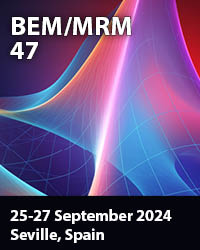Multi-scale FE Analyses Of Sheet Formability Based On SEM-EBSD Crystal Texture Measurement
Price
Free (open access)
Transaction
Volume
48
Pages
9
Page Range
61 - 69
Published
2009
Size
1,370 kb
Paper DOI
10.2495/CMEM090061
Copyright
WIT Press
Author(s)
H. Sakamoto, H. Kuramae, E. Nakamachi & H. Morimoto
Abstract
The asymmetric rolling is applied to the material process of aluminum alloy sheet to control the micro-crystal structure and the texture in order to improve the mechanical properties. The formability of asymmetrically rolled (ASR) aluminum alloy sheet and conventional symmetrical rolled (SR) one is examined experimentally by employing limiting dome height (LDH) test. The micro crystalline morphological changes, such as the texture evolution under the various proportional straining paths, are observed by using SEM-EBSD measurement. Simultaneously, the failures of the sheets are detected to establish the forming limits in the in-plane principal strains space, such as forming limit diagram. SEM-EBSD measurement results show a significant effect of the strain path on the texture evolutions. It reveals that the ASR sheet evolutes the shear texture more than SR one, and it can be related to improve the formability by employing this asymmetrical rolling. However, the finite element simulations to predict the deformation induced texture evolution of the asymmetrically rolled sheet metals have not been investigated rigorously. In this study, the crystallographic homogenized finite element (FE) codes were developed and applied to simulate the LDH tests, and compared with experimental one. It is shown that this dynamic explicit type crystallographic homogenization FEM code shows a comprehensive tool to predict the plastic induced texture evolution. Keywords: multi-scale, SEM-EBSD, crystal texture, sheet formability, LDH test.
Keywords
multi-scale, SEM-EBSD, crystal texture, sheet formability, LDH test.





